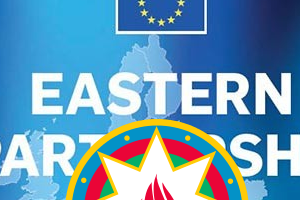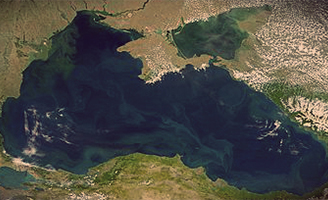Russia's Gazprom to deepen its presence in the Georgian market?
By Natalia Konarzewska
December 7th, 2015, The CACI Analyst
After meeting with Gazprom’s CEO Alexei Miller in Milan on September 25, Georgia’s Energy Minister Kakha Kaladze announced that the parties discussed increasing Russia’s transit of gas to Armenia and opened a possibility for Georgian commercial entities to buy additional volumes of Russian gas. In October, Kaladze reiterated that Tbilisi wants to diversify its natural gas routes and suppliers through imports from Russia and possibly Iran. No details about the eventual increase of gas shipments from Russia have so far been revealed. Yet the prospective agreement has already caused controversy among Georgian political opposition, which questions Gazprom’s reliability as a gas supplier, and raised concerns in Azerbaijan, which is Georgia’s largest gas provider.
A new boost for the Southern Corridor?
By Stephen Blank
November 20th, 2015, The CACI Analyst
In early October Frontera Corporation announced that it had discovered 3.8 trillion cubic meters (TCM) of gas in Georgia’s Kakheti region. Although the discovery needs to be confirmed and the precise amount of gas determined; this discovery has major potential benefits of both an economic and geopolitical nature for Georgia, Azerbaijan and Europe. But there are lurking dangers as well, especially as the Georgian government recently voiced its intention to sign an agreement with Gazprom for Russian gas and diversify away from its exclusive reliance on Azerbaijan, despite that country’s utter reliability over several years and lack of designs upon Georgia.
Iran's reentry on gas markets and challenges to TAPI
By Najia Badykova (09/02/2015 issue of the CACI Analyst)
In anticipation of the lifting of sanctions on Iran and the country’s resulting potential to become a major energy player in Eurasia, Tehran, its neighbors, and European countries are evaluating their options. Iran’s eagerness to enter the European and South Asian gas markets will immediately affect the Caspian Sea Basin, already subjected to intense rivalry over pipeline routes, where most prominently Turkmenistan targets the same markets. Iran cannot in the short term supply gas in the quantities needed to diversify European supply, but seeks to secure its participation in the European market by offering its territory for Turkmen gas deliveries to Europe. Iran is much better positioned towards South Asia, where it can export its surplus gas to Pakistan and India leaving Turkmen gas less competitive in those markets.
Azerbaijan and the EU
By Natalia Konarzewska (06/24/2015 issue of the CACI Analyst)
Azerbaijan’s president Ilham Aliyev made a last-minute decision not to attend the European Union’s May 21–22 Eastern Partnership (EaP) summit in Riga, citing the need to focus on the upcoming European Olympic Games, which were about to start in Baku. However, high-ranking officials quoted in the media asserted that president Aliyev did not attend the summit due to Western criticism towards Azerbaijan. Baku also expressed dissatisfaction with the summit’s results as Azerbaijan hoped to receive more vocal Western support for the resolution of the Nagorno-Karabakh conflict. Instead, attention was focused on human rights violations in Azerbaijan. Azerbaijan’s relationship with the EU is becoming increasingly strained and displays growing disappointment from both sides.

Will Turkish Stream Compete With the Southern Gas Corridor?
By Natalia Konarzewska (05/13/2015 issue of the CACI Analyst)
The Turkish Stream pipeline, envisaged to transport Russian natural gas via the Black Sea to the Turkish-Greek border, is again gaining political momentum and raises interest in the region. On April 7, during a meeting in Budapest, the Foreign Ministers of Hungary, Serbia, Macedonia and Turkey expressed their countries’ interest in participating in the project and discussed possibilities of building European infrastructure for Turkish Stream. As this Russian-backed project targets the same region and is intended to supply roughly the same markets as the Southern Gas Corridor, the question arises whether Turkish Stream will eventually compete with TANAP and TAP in natural gas deliveries to Turkey and Southeast Europe.








